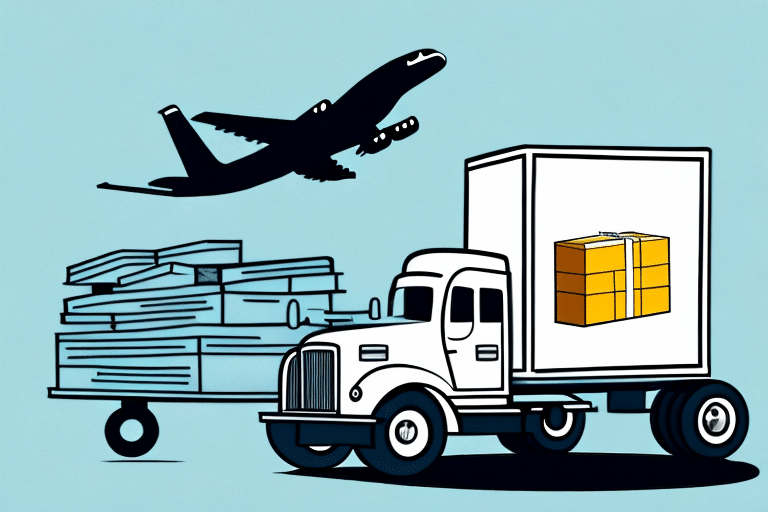Managing Delivery Exceptions with Ecommerce Shipping Carrier Solutions
In today's fast-paced world, ecommerce has become an integral part of our daily lives. It has revolutionized the way we purchase goods and services, enabling businesses to reach customers globally. However, one of the biggest challenges that ecommerce retailers face is managing delivery exceptions. To ensure timely delivery of goods, it is essential to have efficient shipping carrier solutions in place that can handle these exceptions. This article provides an in-depth analysis of common delivery exceptions, their causes, impacts on business operations, and strategies for effective management through ecommerce shipping carrier solutions.
Introduction to Delivery Exceptions
Delivery exceptions in ecommerce refer to situations where shipments fail to reach their intended destinations due to various reasons. These can range from incorrect shipping addresses to issues with the package itself. Delivery exceptions can lead to delayed deliveries, increased costs, and dissatisfied customers. Therefore, ecommerce retailers must implement robust strategies to manage these exceptions effectively.
Types of Delivery Exceptions
- Incorrect or incomplete shipping addresses
- Recipient unavailable to accept the package
- Package damaged or lost
- Customs delays for international shipments
- Weather-related delivery disruptions
- Invalid or inaccurate tracking information
- Payment processing issues
Causes of Delivery Exceptions
Understanding the root causes of delivery exceptions is crucial for minimizing their occurrence. Common causes include:
Incorrect Shipping Information
Errors in the shipping address, such as misspellings or missing apartment numbers, can result in packages being sent to the wrong location or returned to the sender. Implementing address verification tools can help mitigate this issue.
Packaging Issues
Poor packaging can lead to damaged goods during transit, causing returns and refunds. Using appropriate packaging materials and techniques is essential to protect shipments.
Customs and Regulatory Delays
International shipments may face delays due to customs inspections and regulatory compliance. Providing accurate documentation and understanding the import regulations of the destination country can expedite the process.
Weather and Transportation Disruptions
Adverse weather conditions and transportation strikes can disrupt delivery schedules. Partnering with reliable carriers and having contingency plans can help manage these unforeseen challenges.
Impact on Business Operations
Delivery exceptions can significantly affect various aspects of ecommerce business operations:
Increased Operational Costs
Handling returns, refunds, and additional shipping costs can erode profit margins. Efficient management of delivery exceptions helps control these expenses.
Customer Satisfaction and Loyalty
Delayed or failed deliveries can lead to customer dissatisfaction and negative reviews, impacting a retailer's reputation. Providing timely resolutions is key to maintaining customer trust.
Inventory Management
Lost or damaged shipments can disrupt inventory levels, affecting stock availability and sales. Accurate tracking and prompt action can help maintain optimal inventory levels.
Managing Delivery Exceptions: Strategies and Solutions
Effective management of delivery exceptions involves a combination of proactive strategies and the use of advanced shipping carrier solutions:
Ecommerce Shipping Carrier Solutions
Shipping carrier solutions offer a range of features designed to streamline shipping processes and handle delivery exceptions efficiently. Key features include:
- Real-Time Tracking: Provides visibility into the shipment's status for both retailers and customers.
- Automated Notifications: Sends updates to customers about their shipment’s progress and any delays.
- Integrated Labeling: Simplifies the shipping process by generating accurate shipping labels.
- Reporting Tools: Offers insights into shipping performance and identifies areas for improvement.
Top Shipping Carrier Solutions
As of 2023, some of the leading ecommerce shipping carrier solutions include:
Choosing the Right Solution
When selecting a shipping carrier solution, consider the following factors:
- Reliability: The carrier’s track record for on-time deliveries.
- Cost: Shipping rates and potential discounts for bulk shipping.
- Integration: Compatibility with existing ecommerce platforms and tools.
- Customer Support: Availability of responsive and helpful customer service.
- Geographic Coverage: Ability to deliver to the necessary regions and countries.
Communicating with Customers
Effective communication is vital when handling delivery exceptions. Strategies include:
Proactive Notifications
Inform customers immediately if there are any delays or issues with their shipments. Use automated emails or SMS notifications to keep them updated.
Offering Solutions
Provide options such as alternate delivery addresses, rescheduling deliveries, or offering refunds and discounts for inconveniences caused.
Transparent Policies
Clearly outline your shipping and return policies on your website to set proper expectations and reduce confusion in case of delivery issues.
Cost-Effective Management Approaches
Minimizing delivery exceptions not only enhances customer satisfaction but also reduces operational costs. Here are some cost-effective strategies:
Optimize Packaging and Labeling
Use appropriate packaging materials to prevent damage and ensure accurate labeling to avoid delivery errors.
Use Reliable Carriers
Partner with reputable shipping carriers known for their reliability and timeliness to reduce the likelihood of delivery exceptions.
Implement Address Verification
Use address verification tools during the checkout process to ensure accuracy and reduce the chances of incorrect deliveries.
Leverage Technology
Invest in shipping software that automates processes, provides real-time tracking, and integrates seamlessly with your ecommerce platform.
Future Trends in Shipping Solutions
The landscape of ecommerce shipping is continually evolving. Future trends include:
Artificial Intelligence and Machine Learning
AI and machine learning are being integrated into shipping solutions to predict and prevent delivery exceptions by analyzing patterns and optimizing routes.
Blockchain Technology
Blockchain can enhance supply chain transparency and security, ensuring the integrity of shipment data and reducing fraud.
Innovative Delivery Methods
Advancements such as drone deliveries and autonomous vehicles are set to revolutionize the speed and efficiency of ecommerce shipping.
Sustainability Initiatives
There is a growing emphasis on sustainable shipping practices, including the use of eco-friendly packaging and optimizing delivery routes to reduce carbon footprints.
Staying informed about these trends and adopting relevant technologies can help ecommerce retailers stay competitive and effectively manage delivery exceptions.
Conclusion
Managing delivery exceptions is critical for the success of any ecommerce business. By understanding the types and causes of delivery exceptions, implementing robust shipping carrier solutions, and maintaining clear communication with customers, retailers can minimize disruptions and enhance customer satisfaction. Additionally, adopting cost-effective strategies and staying abreast of future trends will ensure that ecommerce operations remain efficient and resilient in the face of ongoing challenges.






















